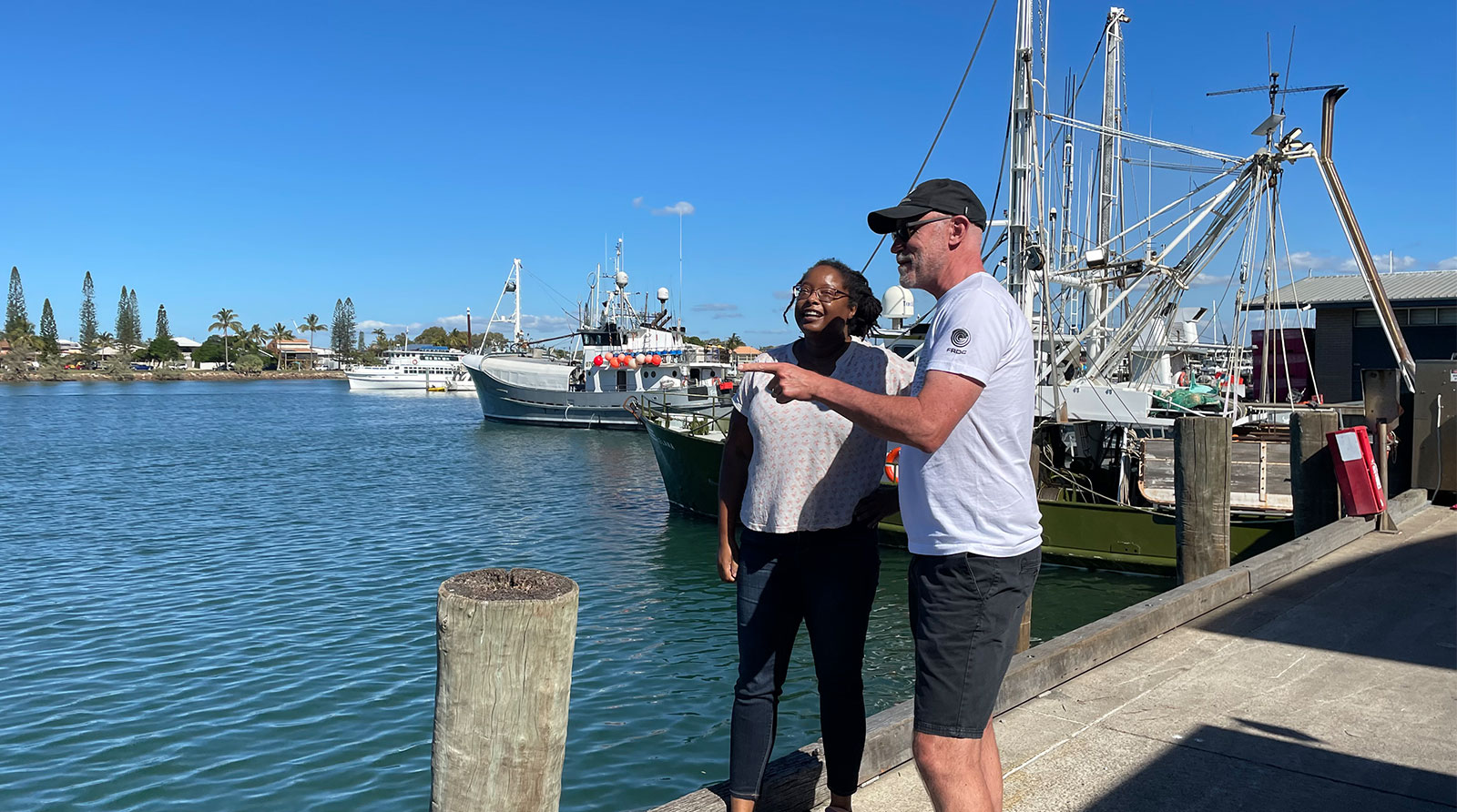Into The Deep End

Dr. Lekelia “Kiki” Jenkins PhD , 2023 Fulbright U.S. Scholar (Funded by the Regional Universities Network of Australia), University of the Sunshine Coast
When I was three years old, my nursery school class took a trip to the local pool.
The teacher asked, “Who can swim?”. I yelled “I can! I can!” and immediately ran forward and jumped in… I could not swim.
But this is who I am as a person. I have been fearless, up for adventure, willing to try something new, and often succeeding.


My office has posters of Rosie the Riveter with the motto “We can do it!” and of Shirley Chisholm (the first black woman U.S. Congressperson) with her campaign slogan. This is how I led my career, pioneering new pathways and always up for new experiences. Opportunities like the Peace Corp and the Fulbright had long been on my bucket list. But I delayed applying for these opportunities in lieu of ones that had age or career stage cut-offs. I thought “I’ll have time for the Fulbright later in my career.” Then I got sick.
I was diagnosed with Ehlers Danlos Syndrome, a connective tissue disorder that affects my mobility and often leaves me in pain; Neural-mediated Hypotension, an illness that can make me dizzy and weak from prolonged standing or sitting; and Mast Cell Activation Syndrome, a disorder that cause multiple spontaneous food and environmental allergies and sensitivities. In learning, to live with these disorders, I had to develop strict routines of medicines, exercise, and a restricted diet. I required regular treatments from highly skilled medical professionals that hard to find. When I traveled, even for a short trip, I often had a companion for care and support, a suitcase of medical supplies, and contact information for local medical professionals.

The idea of doing a Fulbright now seemed almost impossible. I went from fearlessly navigating new spaces to fearing how even a short trip would impact my body. But with a sabbatical coming, I decided to attend an online informational session about the Fulbright. I remember vividly the section where they spoke of the Fulbright being supportive of people with disabilities. Before my diagnoses, I had wanted to do a Fulbright in Africa, but this still seemed overwhelming from a medical perspective. I had also developed collegial connections in Australia around a topic that really interested me: science art and marine sustainability. So, even though I did not know how it could work out, I applied and was selected for a Fulbright Scholarship to Australia.
 While it took many months of communicating with the Fulbright staff, they were amazingly helpful in putting together accommodations that would allow me to do the Fulbright. My hosts gave me recommendations of local medical providers. In sharing about my disability, my hosts reciprocated by sharing about their own medical struggles, setting the stage for mutual empathy and reasonable work expectations during my Fulbright.
While it took many months of communicating with the Fulbright staff, they were amazingly helpful in putting together accommodations that would allow me to do the Fulbright. My hosts gave me recommendations of local medical providers. In sharing about my disability, my hosts reciprocated by sharing about their own medical struggles, setting the stage for mutual empathy and reasonable work expectations during my Fulbright.
I discovered that Australian airports are part of the Hidden Disabilities network, so even while traveling alone I had support and understanding about my conditions. While I not quite the girl who ran head long into a pool saying “I can. I can.” The Fulbright has renewed my confidence to be adventurous and explore new places. I now think, “This is possible. I can make a plan. I can get support. I can make this work.”
Three weeks after I return to the United States, I will leave again for a six-week stint as part of the Fulbright Specialist Program. My host institution is based in Malawi, a country in southeast Africa.
So, if you have a disability and are wondering if a Fulbright is something you can do, my advice is “This is possible. You can make a plan. You can get support. You can make this work.”
Copyright © 2021 – Fulbright


 Facebook
Facebook Twitter
Twitter Linkedin
Linkedin Instagram
Instagram